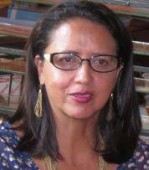Government Attacks on Thinking in the World Aim to Subjugate Societies
by Dina Meza translated by Katherine Wingfield-Dobbs / November 4, 2016 / No comments
The issues brought forth at the 82nd Pen International Congress underscore the necessity of a united front against the oppression of free expression.
From September 25 to 29 this year, the 82nd Pen International Congress took place in Ourense, Galicia, Spain, with approximately 250 delegates from Pen Centers around the world, affiliated to Pen International. This event takes place every year in a different location around the world.

- Honduras has one of the world’s highest murder rates. It is also one of the most dangerous countries to practice journalism, ranking 129th out of 180 in the 2014 World Press Freedom Index. Journalists are regularly threatened, attacked, and killed for their work. The Honduran government fails to punish those who use violence against reporters, essentially granting them impunity. This space will be dedicated to examining the lack of protection for Honduran journalists exercising their profession. Topics will include the use of state-sponsored advertising as a mechanism to reward or punish publications, and censorship and self-censorship as hindrances to democratic progress.

- Born in Cofradía, Honduras, Dina Meza has been recognized by PEN International, Amnesty International, Index on Censorship and Reporters without Borders for her work as a journalist and human rights advocate. Currently, Dina is the driving force behind the creation of Honduras PEN Centre. In 2013, she wrote “Reign of Terror,” an in-depth report on threats to Honduran journalists for Index on Censorship’s magazine. In 2014, she was named one of Reporters Without Borders’ “100 Heroes and Heroines of Information.”
It is amazing to bring together people from different cultures and with different languages, but the most amazing thing is how they share the same struggles-– amongst them, fighting against authoritarian governments that do not wish to allow space for thought and that seek to deal with it with prison, threats, harassment, crime, and surveillance, amongst other forms of repression.
It fell to me to attend as a representative of the Pen Center Honduras. There, we exposed the situation in respect of freedom of expression, and a resolution was adopted condemning the repression against the social protest at the National Autonomous University of Honduras (Universidad Autónoma de Honduras, or UNAH), impunity for crimes against journalists and social commentators, and the criminalization of practicing journalism through slander and libel-–crimes which those who exercise the freedom of expression are accused of in order to silence them.
I was impressed upon hearing the stories from other Pen Centers in different parts of the globe–-amongst them China, where writers are attacked merely for publishing a book which disagrees with the thinking of the current government.
And listening to all the continents made me reflect on how dangerous it is to give space to authoritarianism and to allow thought to be stifled. I told myself that something must be done urgently. I believe that unity in the world of writers, journalists, human rights defenders, artists, poets, and everyone else who in one form or another makes use of thought to express themselves, is the key. We must not let this monster-–whose agenda is to kill thought–-advance.
What would happen if no one thought to involve themselves in problems? What would happen if everyone devoted themselves to saying yes, yes to the governments who want an agenda and popular thinking that favors them?
In Honduras, it grieves me how some journalist colleagues succumb to fear when the leader says that they want to ignite the country, or to the good life that being in agreement with all the president says brings (we call the latter “tariffed” journalists). There are writers who also write what the presidents want them to say, leaving to one side the thoughts that should flow freely, without obstacles of any kind.
Fear is cruel, and self-censorship is a chilling situation due to the fear of being assassinated or persecuted in Honduras. Self-censorship is not confined to the newsrooms, but has even made its way to the church pulpits, according to what some pastors have denounced, which jeopardizes freedom of expression and turns those who submit to this silencing into mere transmitters of fear.
I remember the tale of the naked king, in which some tailors lie to the king, telling him that they made him a suit invisible to those who are stupid or unfit for their offices, and so the king goes out in public naked. No one dares to tell him the truth until a child does so. The moral is that people hear what they want to hear, and on many occasions they hear what they hear due to fear. That situation was somewhat comfortable at the start, but in the long run, it was a complete violation of rights.
Returning to the meeting of writers at the 82nd Pen International in Ourense, it provided me with lots of information, as well as thoughts, and a commitment that we must kick-start a common strategy to protect the existence of free thought.
I am sure that governments will carry on using all their tools of repression to destroy freedom of thought, but it is also certain that if the whole planet protects the free play of ideas, those state arsenals will fall short, faced with the strength of solidarity with one another.
That is why these meetings attract me: they leave me animated, strengthened, and with challenges to carry out. But it is strength in unity that will hand us victory in overcoming authoritarianism.
It is urgent that we progress with a common care project for all writers, journalists, and defenders of human rights who are attacked for making use of their freedom of thought. Let us make a human shield to defend them; otherwise, the bars and bullets will end humanity–-because there is no life without thought!





